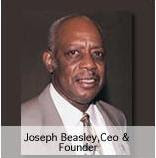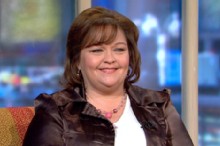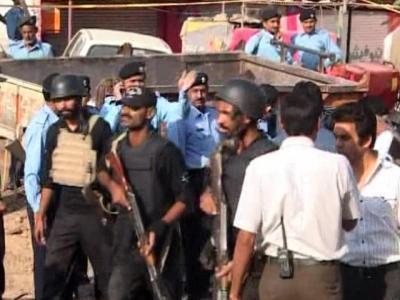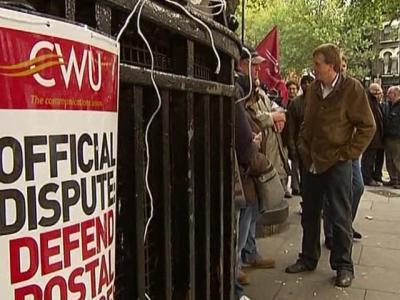Clinton, Obama battle for upper hand in Nevada

LAS VEGAS, Nevada (CNN) -- The battle for the Democratic presidential nomination heads west Saturday with caucuses in Nevada, where unions and a large Hispanic population are heavily expected to influence the results.
art.clinton.nv.gi.jpg
For years, the region was excluded from playing a significant part in nominating presidential candidates, but Senate Majority Leader Harry Reid used his clout to move up his state's caucuses, increasing Nevada's profile on the primary calendar.
After the early, dramatic outcomes in Iowa and New Hampshire -- split between Sens. Barack Obama and Hillary Clinton, respectively -- the top Democratic campaigns are bringing in hundreds of extra staff and volunteers to Nevada.
The GOP also is holding caucuses Saturday in Nevada, but most Republican candidates will be focusing their attention that day on the South Carolina primary.
The Democratic race in Nevada appears tight, with the two front-runners in a statistical tie.
According to an American Research Group poll conducted January 9 through Monday, Clinton is leading Obama 35 percent to 32 percent among likely Democratic caucus-goers. Former Sen. John Edwards has the support of 25 percent. The survey's margin of error is plus or minus 4 percentage points.
The winner of the Nevada contest could gain the upper hand going into South Carolina's January 26 primary and the Florida one on January 29.
Don't Miss
* Blacks, young voters choose 'uncommitted' over Clinton
* Obama, Clinton call for end of racially charged fight
* Election Center 2008: Nevada
On Tuesday, Clinton, the only top-tier candidate on the Michigan ballot, won that state's primary, with 55 percent of the vote.
Obama and Edwards skipped Michigan after the national Democratic Party stripped the state of its national convention delegates. The move was punishment for the state's decision to move its primary up to January 15, defying Democratic leaders who tried to slow the front-loading of the primary process.
Some of Obama's and Edwards' supporters urged voters to turn out anyway and vote for uncommitted delegates to preserve their influence at the convention.
Michigan's results contained what may be troubling news for the senator from New York despite her win. According to exit polls, 68 percent of black voters chose "uncommitted," compared with 30 percent for Clinton.
In Nevada, voters appear to be excited as they prepare for the first time to help shape the presidential race.
"You see signs all up and down the roadways," said Lloyd Little, an Edwards volunteer. "And you can hear it in conversations just by walking by different people. We're excited about it. We're going to take advantage of our opportunity. No doubt about it." Video Watch Tuesday's Democratic debate in Las Vegas »
In a sign of the high level of interest in the caucus process, the Nevada Democratic Party has designated nine at-large caucus sites in Las Vegas casinos to give workers who wouldn't be able to leave the casinos a chance to participate in the process.
However, according to The Associated Press, on Friday a teachers union with ties to Clinton and six Democrats sued to stop the casino caucuses, saying that the caucuses allocated too many state convention delegates to one group.
The Clinton campaign denied any involvement in the lawsuit, but the Obama campaign noted the suit was brought after Nevada's culinary workers' union, which represents many of the casino and hotel workers, endorsed Obama.
Nevada is one of the fastest-growing and most diverse states, with one in every five people a Hispanic and a heavily unionized work force.
"Demographic changes have worked to the advantage of the Democratic Party here, and now we see the Democratic Party opening up a sizable voter registration increase over the Republicans," said David Damore, a political science professor at the University of Nevada, Las Vegas. "That's something they have not had here."
Nevada will be the first early primary in which Hispanics will be a significant voting bloc. They are the nation's fastest-growing minority, and almost 60 percent identify themselves as Democrats. Hispanics make up 12 percent of Nevada's eligible voters, compared with 9 percent of eligible voters nationally.
Democrats moved Nevada's primary up, in part, to showcase the Hispanic vote, and all the major Democratic candidates are vying to capture it. Video Watch how the Hispanic vote may influence the race »
"If you have to win this state and if this is the state the Democratic Party set up as the example of the influence of Hispanic voters in the party, you have to be able to show you can win Hispanic support," said Adam Segal of the Hispanic Voter Project at Johns Hopkins University.
Nevada Hispanics' concerns are the same kitchen-table issues that worry the rest of the nation, Segal said.
"They're focused on whether they'll have jobs over six months, whether they can afford health care, [and] adequate education," Segal said. "The war in Iraq and immigration are enormous, but Democrats are not using those issues as a wedge issue in the primary battle."
In a tight race, the Hispanic vote could decide who wins the state. The victor will have bragging rights as they face primaries in California, New York and New Jersey, battleground states where the Hispanic vote also could be decisive.
Obama scored a crucial boost when the culinary workers endorsed him. Most of the union's members are Hispanic and will be encouraged to caucus for him.
But Clinton tried to counter the union's support with an endorsement from labor activist Richard Chavez, brother of legendary union organizer Cesar Chavez.
advertisement
Given that Nevada has never played such a prominent role before, nothing is a sure bet for the candidates. Even with volunteers working multiple shifts on the phones and out in the field, the campaigns say they wonder if they can count on Nevadans to come out and vote. Some 9,000 turned out for the 2004 caucus, which then was much later in the election cycle.
"People aren't used to being one of the states that decides," said Adam Bozzi, a Nevada press secretary for Edwards. "We've had to explain to them what a caucus is. We've had to explain to them what they have to do to caucus and why it's important. So we don't know what turnouts are going to be."

























1 comments:
The United States of America, the final frontier. Even 3rd world countries have women presidents, prime ministers; but in the U.S. of A., where women are the majority, breaking the gender barrier is like pulling teeth.
Post a Comment